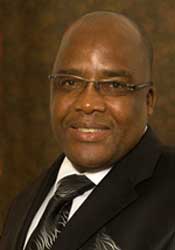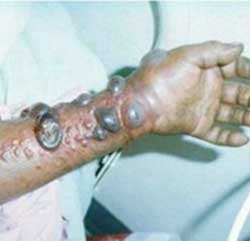Health Ministers from the Southern African Development Community (SADC) will hold an extraordinary meeting to discuss the state of readiness and develop a common approach in response to the Ebola outbreak in West Africa.

Dr Aaron Motsoaledi is to convene an extraordinary meeting of SADC health ministers to discuss measures to stop the spread of Ebola to the southern regions of Africa.
The meeting, to be held in Johannesburg, is hosted by the South African Government and led by Health Minister Dr Aaron Motsoaledi.
Convened by the SADC Secretariat, the meeting will bring together Ministers of Health and key stakeholders to build a consensus on appropriate strategic action(s) to prevent the spread of the Ebola virus to the SADC from West Africa.
The meeting will be attended and addressed by the National Institute for Communicable Diseases (NICD) and the World Health Organisation (WHO).
According to WHO reports, a total of 163 new cases of Ebola were confirmed in just two days (31 July, 1 August). There have been another 61 deaths reported from Guinea, Liberia, Nigeria, and Sierra Leone.
"Three of these cases are in Nigeria and include three new cases: a health-care worker, a Nigerian who travelled to Guinea and a nurse," WHO says.
Virus spreading rapid as infections reach 1,603
Since its initial outbreak in the West African countries in March, 1,603 suspected cases and 887 deaths have been reported as the disease continues to spread.

Graphic photograph showing the consequences of having the haemorrhagic fever. Image:
Information VillaSouth Africa has no confirmed cases of Ebola and the Department of Health has assured South Africans all precautions are being taken to prevent its spread.
Ebola is transmitted from person to person through direct contact with blood or infected tissues from an infected person. Health workers and family members of infected people in the areas where the outbreak has occurred would be at risk.
The Ebola virus causes Ebola virus disease (EVD) in humans, with a fatality rate of up to 90%. The virus is introduced into the human population through close contact with the blood, secretions, organs or other bodily fluids of infected animals.
Ebola can then spread in the community through human-to-human transmission, with infection resulting from direct contact (through broken skin or mucous membranes) with the blood, secretions, organs or other bodily fluids of infected people, and indirect contact with environments contaminated with such fluids.
EVD is a severe acute viral illness often characterised by the sudden onset of fever, intense weakness, muscle pain, headache and sore throat. This is followed by vomiting, diarrhoea, rash, impaired kidney and liver function, and in some cases, both internal and external bleeding.










































